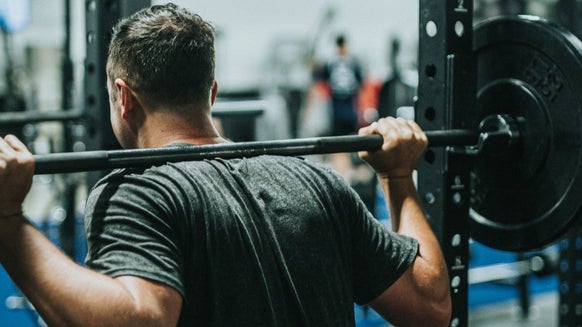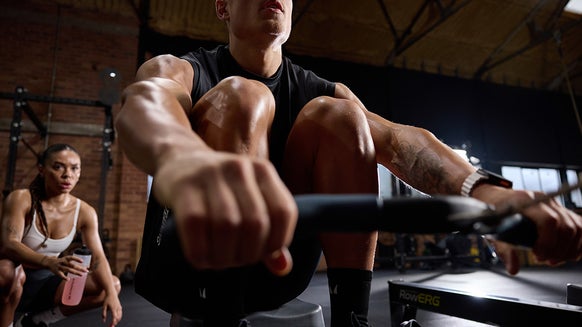Does Creatine Really Make You Gain Fat?

Creatine is a highly researched and highly popular sports nutrition supplement that is used by gym-goers of all levels and abilities. It’s surrounded by a lot of myths, however it’s a completely natural substance that’s actually made by the body itself. This article is here to shed a little more light on creatine.
But first, get up to speed on what creatine does with one of our experts...
What is creatine?
Creatine is a naturally occurring compound found in the body. It combines with another compound called phosphagen to result in PCr (phosphocreatine) which helps muscle contraction. Creatine helps with explosive type movements that don’t require oxygen - or anaerobic exercise.
When doing a squat for example, a movement which is very powerful and doesn’t last too long, your body will use creatine to make ATP for energy. ATP (adenosine triphosphate) is the main source of energy in the body. Having quick energy available during explosive movements can optimize your performance.

Does creatine make you gain fat?
This may sound like an odd statement considering that creatine is a highly effective supplement that’s been scientifically proven to increase exercise performance, however, creatine supplementation can result in water retention. This means that creatine draws water towards the muscles therefore making your muscles look fuller. This can lead to some users feeling that they look bloated after taking creatine.
Because creatine fuels explosive, powerful movements, your body is working very hard even for short periods of time. These types of exercises lead to increased calorie burn long after your workout is over.1 Not only can it boost your metabolism in the short term, but building more muscle from these types of movements actually burns fat in the long run.
So, when people say, “will creatine make you gain fat?”, the answer is, no, it won’t. While you may notice an increase on the scale or think you look heavier, water weight gain reflects the hydration of your muscles - which is a good thing. Muscles that are well hydrated can recover more quickly and take longer to fatigue.1

Take Home Message
Creatine is a naturally occurring compound in the body, and by taking creatine you just allow your body to replenish the amount of ATP it has access to at a much faster rate.
So no, creatine doesn’t make you fat, it just draws more water to the muscles making them seem fuller and therefore the increased water intake can make an athlete weigh more. Optimizing your hydration status helps your muscles to recover, rebuild, and perform better.
FAQs
Does creatine make you gain fat?
Creatine increases water retention in the muscles which can lead to some users feeling that they look bloated.
Does creatine make you retain fat?
Creatine cannot make you fat. It can however cause water retention in the muscles.
What is creatine?
Check out our Best Creatine Supplements here.
Want to know more about creatine? Check these out:

Claire is a Registered Dietitian through the Academy of Nutrition and Dietetics and a board-certified Health and Wellness Coach through the International Consortium for Health and Wellness Coaching. She has a Bachelor of Science in Biology and a Master’s degree in Clinical Dietetics and Nutrition from the University of Pittsburgh.
Talking and writing about food and fitness is at the heart of Claire’s ethos as she loves to use her experience to help others meet their health and wellness goals.
Claire is also a certified indoor cycling instructor and loves the mental and physical boost she gets from regular runs and yoga classes. When she’s not keeping fit herself, she’s cheering on her hometown’s sports teams in Pittsburgh, or cooking for her family in the kitchen.
Find out more about Claire’s experience here.
- Terjung, R. L., Clarkson, P., Eichner, E. R., Greenhaff, P. L., Hespel, P. J., Israel, R. G., … & Williams, M. H. (2000). American College of Sports Medicine roundtable. The physiological and health effects of oral creatine supplementation. Medicine and science in sports and exercise, 32(3), 706-717.









